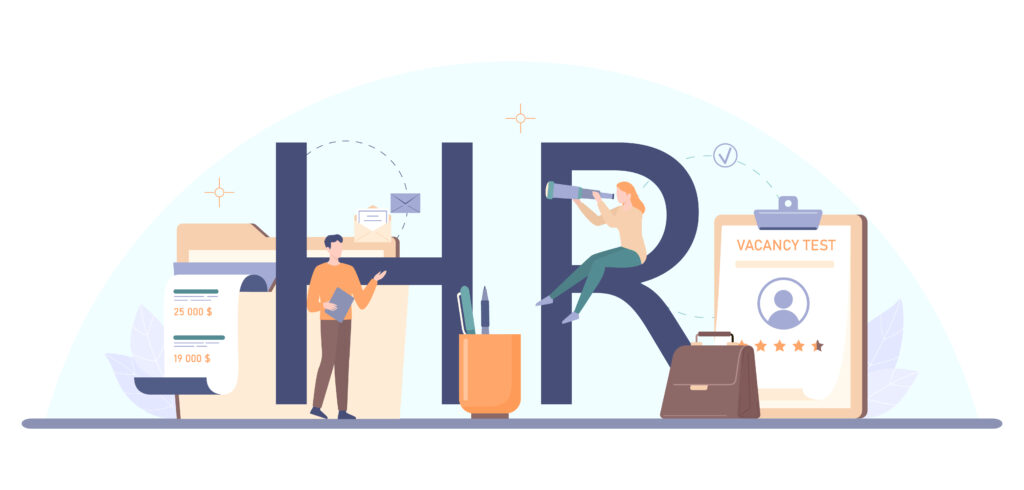Certified HR Generalist: Your Gateway to a Thriving Career in Human Resources
Why Become a Certified HR Generalist?
Human Resource (HR) professionals are essential for managing talent, fostering organizational culture, and driving employee engagement. A Certified HR Generalist is equipped to handle key HR responsibilities, making them a valuable asset to any organization.
With this certification, you gain practical knowledge in core HR functions, including recruitment, onboarding, payroll management, employee relations, compliance, and performance evaluation. It’s the ideal pathway to building a successful career in HR

Key Benefits of Becoming a Certified HR Generalist
- Comprehensive Skillset: Gain expertise in hiring, training, payroll, compliance, and more.
- Industry Recognition: Stand out in the competitive job market with a recognized certification.
- Career Growth: Unlock opportunities for senior HR roles such as HR Manager or HR Business Partner.
- In-Demand Expertise: Learn how to manage modern HR challenges like diversity and remote teams.
- Networking Opportunities: Build meaningful professional connections in the HR community.
Job Opportunities for Certified HR Generalists
A Certified HR Generalist qualification opens doors to diverse roles across industries:
- HR Generalist
- Recruitment Specialist
- Employee Relations Manager
- Compensation & Benefits Specialist
- HR Operations Executive
- Training & Development Coordinator
Top Industries Hiring Certified HR Professionals:
- IT & Technology
- Healthcare
- Retail & E-Commerce
- Banking & Financial Services
- Manufacturing
Salary Insights
The earning potential for an HR Generalist depends on experience, location, and the size of the organization:
- Entry-Level HR Generalist: ₹3,00,000 – ₹5,00,000 per annum
- Mid-Level HR Professional: ₹6,00,000 – ₹10,00,000 per annum
- Senior HR Manager/Partner: ₹12,00,000+ per annum
Global Opportunities: Certified HR Generalists are highly sought after globally, with competitive salaries in countries like the USA, UK, UAE, and Canada.
Roles and Responsibilities of a Certified HR Generalist
1. Recruitment and Talent Acquisition
- Sourcing candidates through job portals, social media, and employee referrals.
- Conducting interviews, coordinating with department heads, and finalizing candidates.
- Creating and posting job descriptions to attract suitable candidates.
- Managing the onboarding process to ensure a smooth transition for new hires.
2. Employee Relations
- Acting as a point of contact for employees to address workplace concerns and grievances.
- Building a positive organizational culture through effective communication and conflict resolution.
- Organizing engagement activities and programs to improve employee satisfaction.
- Maintaining transparent communication between employees and management.
3. Payroll and Compensation Management
- Managing payroll processes, including salary computation and disbursement.
- Ensuring compliance with tax regulations, employee benefits, and statutory requirements.
- Maintaining accurate records of employee attendance, leaves, and overtime.
- Collaborating with finance teams for error-free payroll execution.
4. Compliance and Legal Framework
- Ensuring the organization complies with labor laws and industry regulations.
- Updating HR policies as per legal amendments and industry best practices.
- Handling employee documentation, contracts, and performance agreements.
- Preparing for audits and ensuring all legal records are updated and accurate.
5. Training and Development
- Identifying training needs by conducting skill gap analyses.
- Designing and implementing employee training programs for professional development.
- Monitoring training effectiveness through feedback and performance evaluations.
- Supporting career progression initiatives and succession planning.
6. Performance Management
- Setting up performance review systems and KPIs for employees.
- Conducting appraisal discussions and providing constructive feedback.
- Identifying underperformers and suggesting improvement plans or training.
- Creating reward systems to motivate and retain top talent.
7. HR Policies and Procedures
- Drafting and implementing HR policies that align with organizational goals.
- Communicating policies effectively to employees and ensuring adherence.
- Regularly reviewing and updating policies to reflect organizational changes.
8. HR Analytics and Reporting
- Using HR software and tools to track metrics such as employee turnover, absenteeism, and productivity.
- Preparing detailed HR reports for management decision-making.
- Analyzing workforce trends to plan recruitment, training, or policy changes.
9. Employee Engagement and Retention
- Organizing events, activities, and initiatives to foster team bonding and engagement.
- Designing employee recognition programs to acknowledge contributions.
- Conducting regular surveys to measure satisfaction and take corrective actions.
- Strategizing ways to reduce attrition rates and improve retention.
10. Grievance Handling and Conflict Resolution
- Addressing employee complaints and resolving conflicts impartially.
- Mediating disputes between employees or between employees and management.
- Ensuring a safe and respectful work environment for all.